I'm a father of three from Sydney, a Product Director and a Product Coach. I write about product management and run the Product Manager community.
Subscribe to receive digest emails (1 per month).
-
To build great products you need to start asking great questions.
A simple question: “What problem are we solving?” will shift a team's mentality from execution to purpose.
And you can feel the exact moment when task-doers start to solve problems.
It's when they talk less about delivery and shipping features and ask more about business challenges, user pain points and the market. That's when they stop taking orders - and start shaping work.
Questions fuel curiosity and curiosity drives collaboration. Teams that ask deeply create better products. -
Bob Moesta: How to find work you love
Stop Making Progress, Start Job Hunting
The moment career progress stops, job searching begins. Most people don't know how to find a better job because they don't know themselves. Moesta interviewed a... Read more -
Results First
Your first responsibility as a manager is to deliver results.
Not culture. Not vibes. Not endless check-ins. Results.
Too many new managers fall in love with the performance of management. They build ... Read more -
You don't need to unlock that new revenue stream or build another new product that will "definitely be a hit".
A lot of leaders fall into the trap of chasing every opportunity, thinking they can manage it all. Then they delegate putting more on the team's plate. The team gets overwhelmed. Bottlenecks get created. The progress stalls.
Instead, focus. Success comes from deliberate, intentional decisions. -
Centralised decision-making will always create bottlenecks. Sooner or later, this will prevent your company from growing.
Traditional and rigid organisations value hierarchy, and leaders often think they need to control every decision.
But this slows innovation, delays time to market, and prevents teams from learning.
Create a culture of ownership at every level. Empower your team to make decisions within their areas of expertise. Trust fuels faster progress. -
Joining a new company as a leader is tricky and sometimes it does feel like stepping into chaos.
There's so much for you to process – new people, culture, challenges, expectations, competing and unclear priorities and pressure to deliver results.
I like to slow it down. I don't try to fix everything on day one. I focus on the context, the big picture first, understand the team and what they need my help with. Once I get where we are going and why, I can focus on the culture and processes to get to the destination faster with stronger teams.
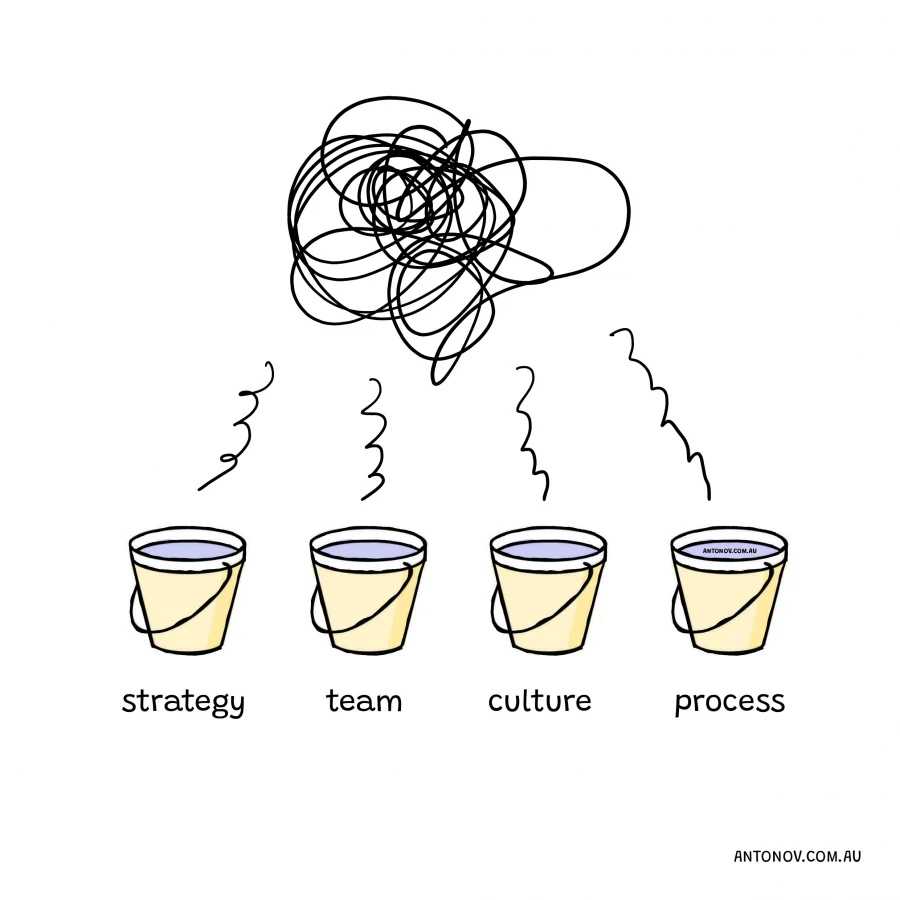
-
It's crazy how many leaders don't know much about their team. They are not curious about their motivations or aspirations, not only professionally but also on a personal level.
Get to know your team. What are their hobbies? What are they exploring? How are their families? Where are they planning their next trip? What are they watching? What are they reading?
Make it a weekly session. It takes just half an hour but builds a much stronger connection. This is important. Stronger connection = more trust. More trust = better feedback, better communication, higher quality of work and more motivation. -
Emily Kramer - The Death of Marketing Channels
📘 Most marketers are solving the wrong problem. You don't need a new channel. You need to know what makes you different. When you figure that out, the rest gets simple.
📘 The conversation tackles the ... Read more -
Set the Tone
Push others. Push yourself harder.
High standards beat perfection. They beat pressure. They are built on one thing - refusing to let average settle in.
Raise the Bar Around You
Call it out when your peers drift. Remind them what great looks like. Challenge your boss to reach higher. Hold the mirror up. Then hold yourself to an even sharper edge. Show them what it means to care - about the work, the craft, the outcome.
Build Incrementally
Pick one standard. Nail it. Then raise another. Layer it like muscle. Burnout comes from trying to change everything at once. Strength comes from building it piece by piece.
Quiet Consistency Wins
High standards are not loud. They are lived.
Patience wins. But only if you refuse to lower the bar while you wait.
Kindness Isn't Compliance
Most people confuse kindness with acceptance. Being kind doesn't mean tolerating mediocrity. Great teams grow because someone had the courage to raise the standard when it was easier to stay quiet.
Watch Out for “Good Enough”
Average is always looking for a way back in. It hides in phrases like “good enough” or “we'll fix it later.” Kill that thinking. Make high standards the default - not the exception.
Lead By Example
Start small. One line of copy. One slide. One handover doc. Show the difference. Set the bar by example. Then hold the line. Hold it when no one's watching. Hold it when others let it slip.
Make Quality Contagious
That's how you lead without the title. That's how you make quality contagious.
High standards are built in silence. But their results speak loud. -
Yes, It's hard to hear criticism.
When someone points out your flaws, your gut reaction is 'WTF?!' - or in business terms, 'defensiveness.'
Of course, you want to protect your ego. You want to explain yourself, prove them wrong, or even tell them to f* off. Tempting, isn't it?
But defensiveness kills growth. Pause. Breathe. Ask yourself: 'What can I learn from this - even though I hate it?' Growth starts the moment you listen instead of emotionally react.
Nothing to learn from it? That's also ok but still thank the person who gave you feedback. -
I don't like running in the morning. Or rather, I don't like the idea of it. What I really want is to have breakfast first, drink my coffee and then, a couple of hours later, think about exercise. But once the run is done, it feels great - like I've earned that big breakfast.
This morning, I went for an easy, scenic 10km run. My legs were still sore from Thursday's hill session, so I didn't (and honestly couldn't) push too hard.
Overall, I'm pretty happy with my progress (112km) in January. I've built up mileage quickly, especially considering I was struggling to run 3km at the end of December.
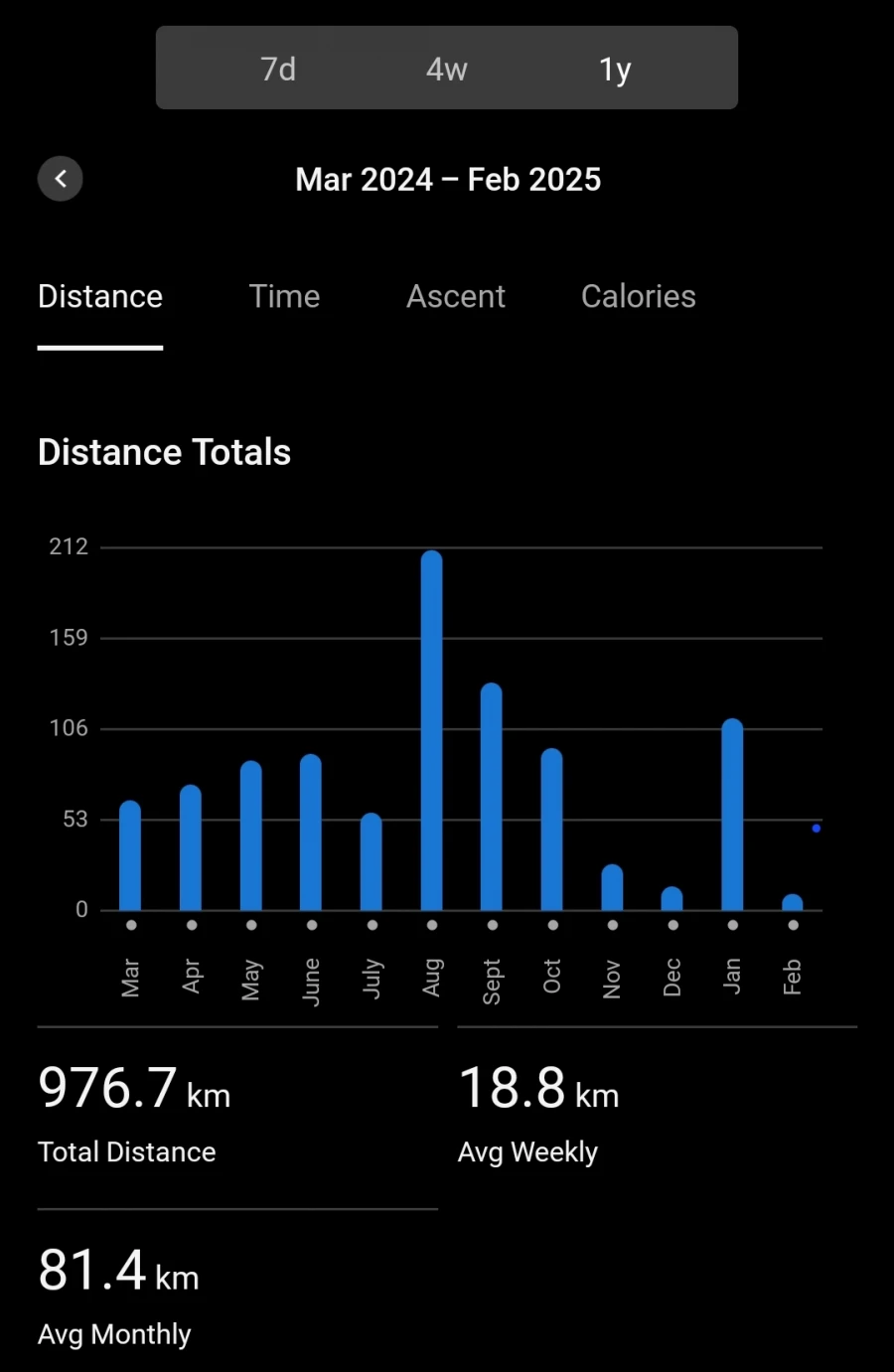
And I snapped a few pics of beautiful Sydney along the way.



-
The concept of a Trust Battery is that it typically starts at 50% and then every interaction charges or drains the trust battery.
It's interesting how, once you pass a certain percentage - let's say 80% (mind you, it's a bit abstract) - on the other person's Trust Battery, a shift happens. Walls drop. And suddenly the next level of collaboration unlocks.
Love these moments. -
Progress motivates action. It's not just the reward; it's the feeling of progress that drives commitment.
Two groups of customers were given punch cards awarding a free car wash once the cards were fully punched. One group was given a blank punch card with eight squares; the other was given a punch card with ten squares that came with two free punches. Both groups still had to purchase eight car washes to receive a free wash; however, the second group of customers - those that were given two free punches - had a staggering 82 percent higher completion rate.
Hooked: How to Build Habit-Forming Products -
It's Thursday, which means hill running day. I can feel the gradual improvement compared to my last two hill runs - I'm feeling much stronger. It's still tough, but I'm covering more distance and tackling more elevation.
Today I did 12km, 437m elevation. The first 9km, I didn't switch to walking - I ran all the hills, which is a huge improvement! Looking forward to an easy run on the flats this weekend though!
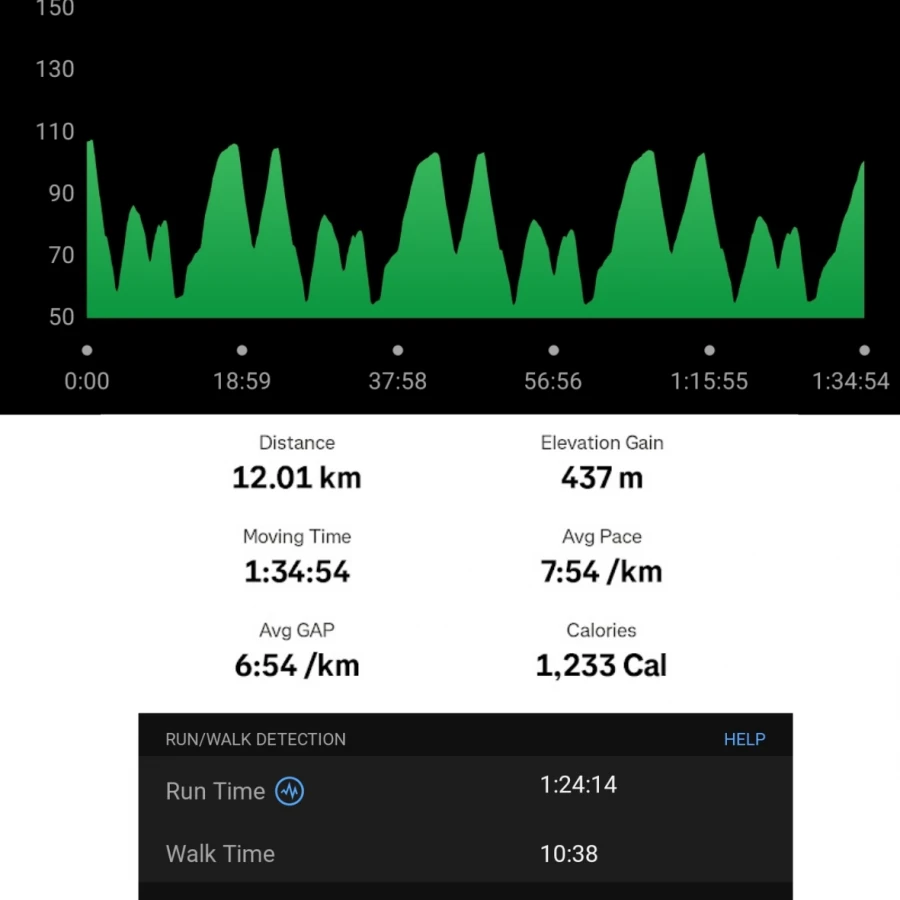
-
Most engagement surveys don't measure engagement.
They measure vibes.
The problem isn't the intent - it's the output. You run a survey. You get a 67.8% “engagement score.” Someone builds a deck. Charts go up, comments stay anonymous, nothing changes.
That number doesn't tell you who's struggling. It doesn't tell you why trust is low. It doesn't tell you where the rot is starting. It just tells you people clicked a box.
Real engagement isn't a metric. It's a conversation.
Ask them how they're feeling. Ask what's blocking them. Ask what's making their work better - or worse. Then shut up and listen. Not just in surveys. In 1:1s. In retros. In offhand comments. The signal's already there. You don't need a dashboard. You need ears.
Pie charts don't build trust. Conversations do. -
A quick training session tonight: SkiErg, rowing machine, plus some shoulders and arms work.
Went all out on the SkiErg 500m, then rowed 500m too. Hit a PB on the SkiErg at 1:42.7!
Strangely enough, I'm actually looking forward to the hills session tomorrow!
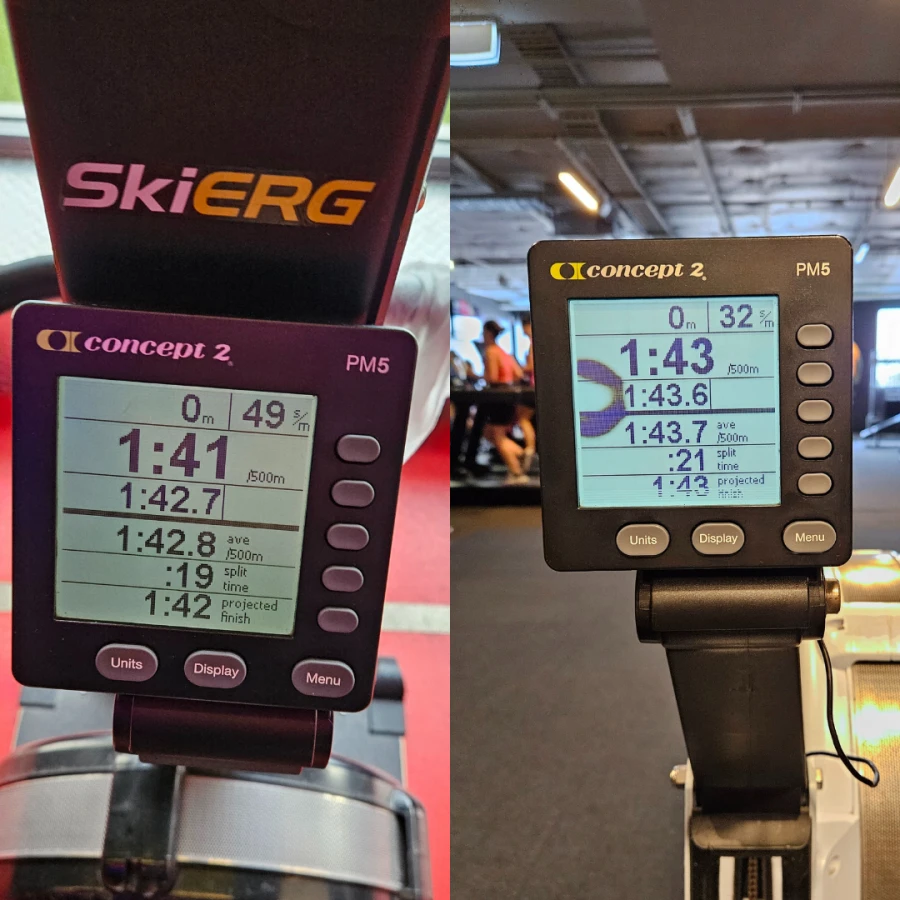
-
Success comes from repeating the right words, not just saying them once.
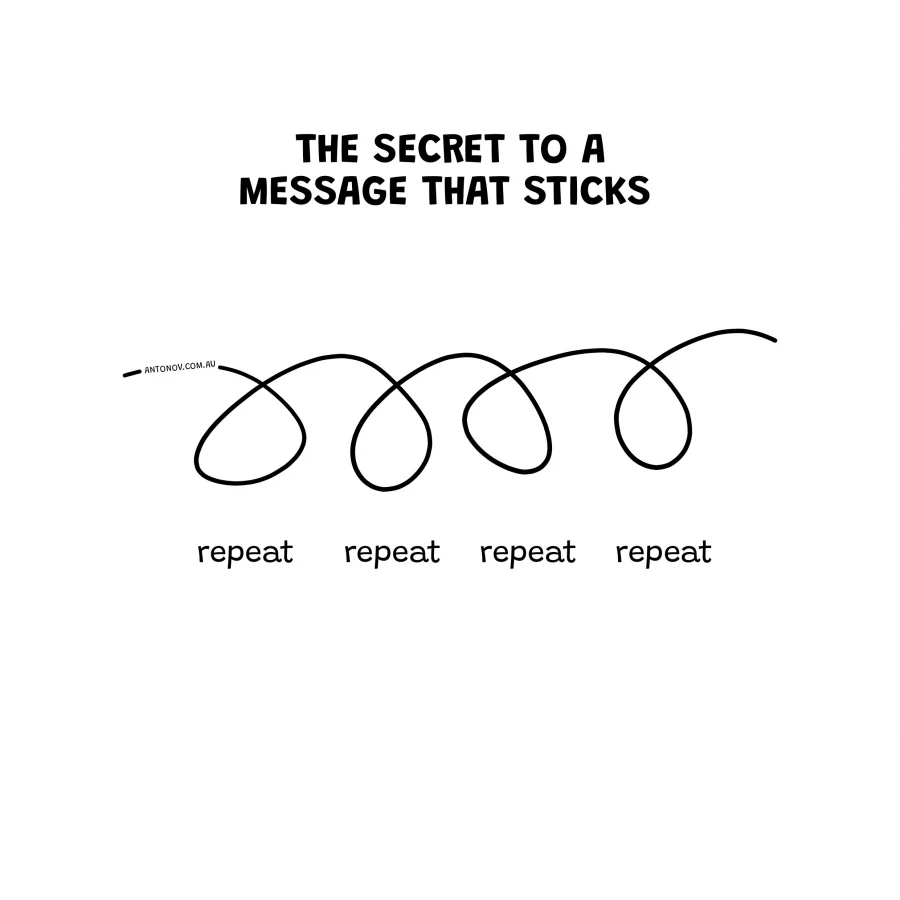
-
Getting used to running hills is definitely going to take some time. Feeling good about building up to running them without needing to switch to walking.
On Thursday, I had a decent go at the hills in my local area. Did 9km in 1h 8m with 307m of elevation. I ran more this time compared to the week before, cutting my walking time down to 7m 24s. Last week, for the same distance, my walking time was 19m 50s, so that's already solid progress.
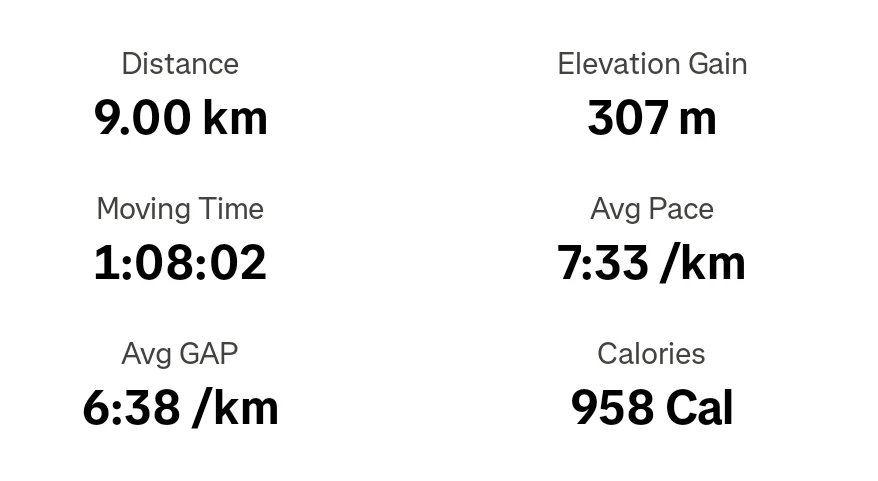
Yesterday, I tackled the Bondi Beach to Coogee Beach run and back - on tired legs. There are plenty of hills and steps along that route, adding up to 283m of elevation. It was just over 14km in total. I managed to run all the way to Coogee but walked the hills on the way back. Calves were sore. Legs felt a bit heavy, which makes sense as I'm ramping up both mileage and intensity.
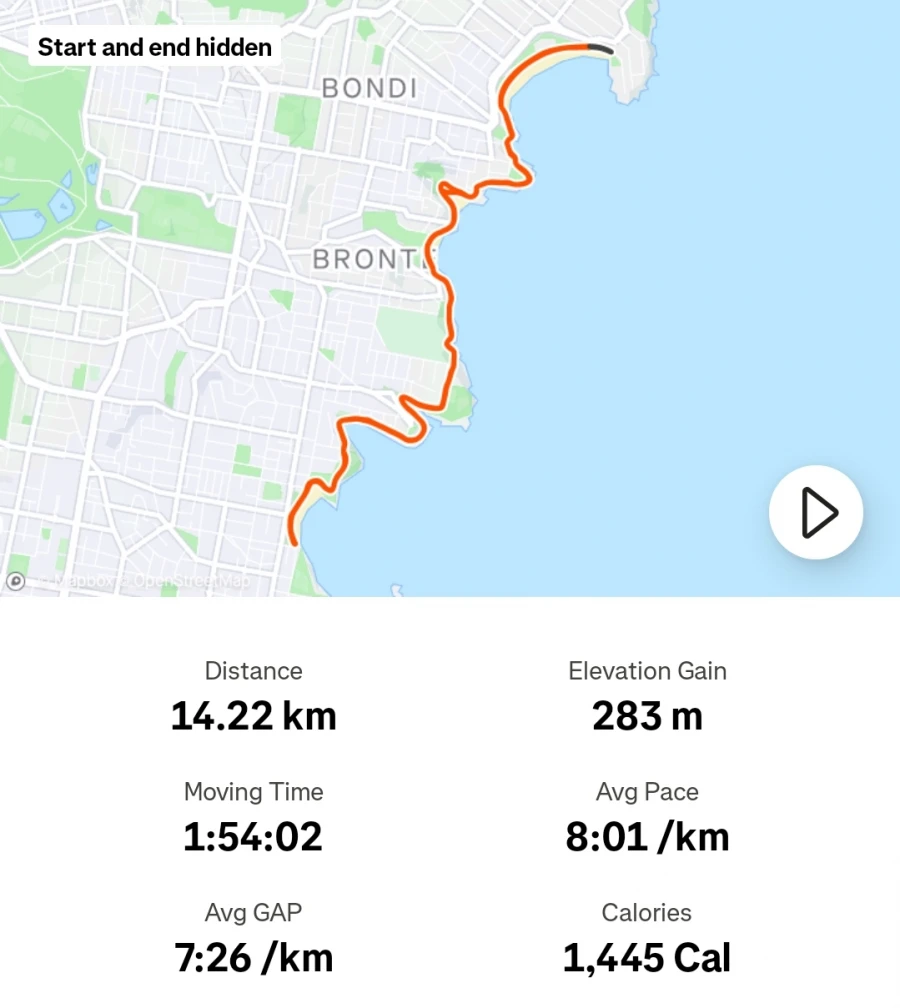
Overall, I'm pretty happy with the progress, but there's still plenty of hard work ahead before UTA50.
110 days to go!

-
Struggling to write? Shrink the task.
Blog post too much? Write a tweet.
Tweet too hard? Write a sentence.
Sentence still suck? Write a shit one.
Start small. Start ugly. Start anyway.
The point isn't brilliance. It's movement. You don't find your voice by thinking. You find it by writing. Quantity leads to clarity. Bad drafts build muscle.
Write badly. Then write better. -
Misalignment is one of the most common (and costly) issues in product development, project planning and team collaboration. Whether it's about the problem you're solving, the solution you're building or simply the language you're using, assumptions often go unnoticed until it's too late.
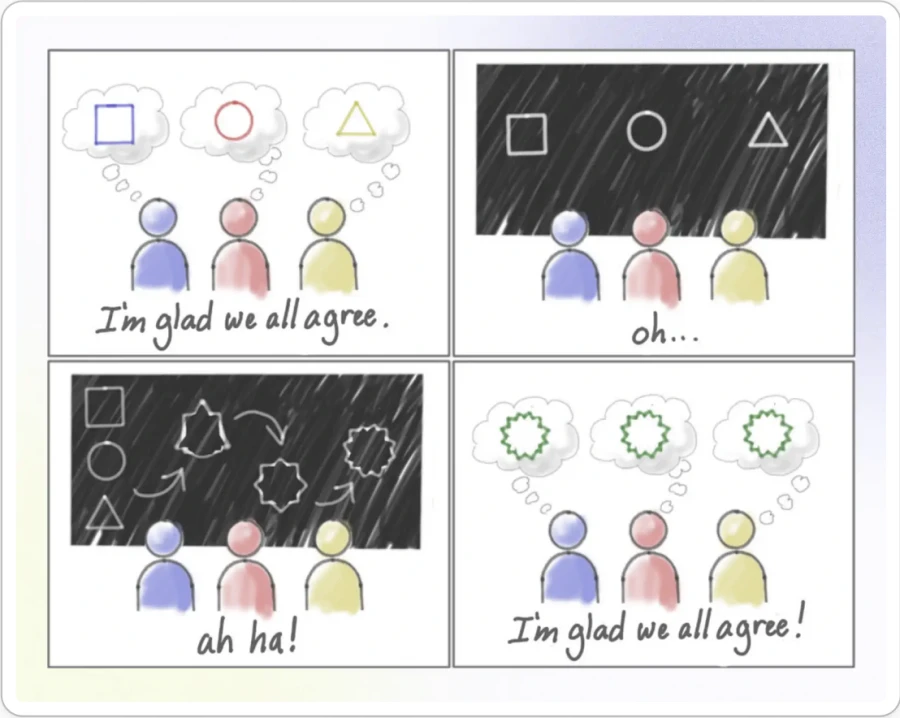
Who This Is For
- Product Managers, Product Designers, engineers and team leads who are struggling with unclear priorities or conflicting understandings.
- Anyone working in cross-functional teams who wants to reduce rework, missed expectations and confusion.
Common Questions This Addresses
- “Why does everyone think we agreed, but we all had different ideas?”
- “How can I surface misalignment before it causes delays?”
- “What's the fastest way to get everyone on the same page?”
Why Writing Down Your Thinking Matters
1. Surface Hidden Assumptions
People often agree verbally, but are visualising completely different things. Putting ideas into writing reveals these mismatches early.
2. Create Shared Understanding
Writing clarifies your own thinking and gives others something concrete to react to, challenge, and align with.
3. Enable Asynchronous Collaboration
Not everyone is in the same room or timezone. A written artefact (like a user story map or brief) allows everyone to engage in their own time.
4. Reduce Future Friction
What feels like a tiny misunderstanding today can snowball into big problems later. Written alignment now prevents costly rework down the line.
Practical Tip: Use User Story Mapping
User story mapping is a collaborative visual exercise that helps teams define the user journey and prioritise features. More than just a diagram, it's a tool to:- Capture what users are trying to achieve
- Break down features into meaningful slices
- Highlight disagreements early
How to Start
- Write it down. Even a rough sketch or bullet list is better than nothing.
- Invite collaboration. Ask others to review, question, and contribute.
- Don't assume agreement. Check for true understanding, not just nodding heads.
If no one has written it down yet, that's your cue. Misalignment loves ambiguity. Writing brings clarity and saves time, money, and trust later.
Document early. Share often. Align before you act.
Feel free to reach out: [email protected].
